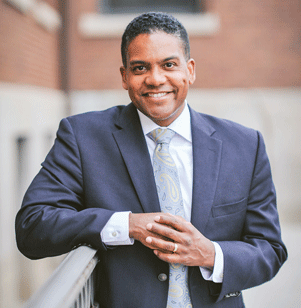Brown University Study Presents Radical Disparity
By Catherine Elvy, Staff Writer
Teens who engage in same-sex activity may be more than twice as likely as their peers to turn to self-harm, according to research from Brown University.
In June, the study appeared in JAMA Pediatrics, prompting a wave of attention from media outlets, including medical press. Such findings add further weight to existing scholarship that has documented physical and emotional risks associated with alternative sexual behavior, especially during adolescent years. In the study, psychiatrist Richard Liu, Cornell ’02, found that rates of non-suicidal self-injury were elevated among engaging in same-sex or “bisexual” behaviors, when compared to other adolescents. Liu is an assistant professor in psychiatry and human behavior at Brown’s Alpert Medical School.
Strikingly, 38 percent to 53 percent of surveyed “homosexual” and “bisexual” teens acknowledged engaging in personally dangerous behaviors, compared to 10 percent to 20 percent of adolescent youth who said they had cut, hit, or bruised themselves.
 Between 2005 and 2017, rates of self-harm decreased among teens, but not among their gay, lesbian, and bisexual counterparts, the study showed.
Between 2005 and 2017, rates of self-harm decreased among teens, but not among their gay, lesbian, and bisexual counterparts, the study showed.
The study probed the self-injury risk among 21,200 high school students who participated in the Massachusetts Youth Risk Behavior Surveillance System between 2005 and 2017. While the analysis focused upon Massachusetts students, the results apply nationally as they “fit within the general pattern of the literature,” Liu told The Boston Globe. In response to the study, a Brown University alumnus who teaches biblical views on sexuality expressed sadness about the “epidemic of poor mental health” among sexually active adolescents.
“Sex, a comprehensive reality, has a comprehensive impact on our identity, relationships, and mission,” said Damon Owens, Brown ’88.
In response to a Brown University study, alumnus Damon Owens (’88) expressed sadness about the “epidemic of poor mental health” among sexually active adolescents.
The speaker and evangelist served for four years as the first executive director of the Theology of the Body Institute and as chairman of the 2016 International Theology of the Body Congress. He also is the founder and executive director of the Joytob, a teaching ministry “dedicated to proclaiming the joy of being made in the image and likeness of God, male and female.”
According to Owens, Christians should be greatly alarmed by self-harm and suicide among teens and young adults, and recognize the even higher risk in teens who are sexually active and pursuing same-sex relations, as well those with confusion about their biological sex (so-called transgender).
For his part, Brown researcher Liu suggested that stigma and discrimination may put “homosexual” and “bisexual” teens at greater risk for poor mental health outcomes.
However, given declining social stigmas, it is time for physicians, scholars, and such to “consider other avenues of causation” for self-harm, said Mark Regnerus, a senior fellow with Texas-based Austin Institute for the Study of Family and Culture.
In related news from Brown, developments continue to emerge from the controversy that started in September 2018 after a professor’s research suggested that some children’s confusion about their biological sex is instigated by social pressure or influence.
Brown initially promoted physician Lisa Littman’s PLOS One paper on rapid onset gender dysphoria and its survey of 256 parents of children. However, after transgender activists raised criticisms, the institution pulled the press release about the study from distribution.
Among the flurry of responses, Jeffrey S. Flier, former dean of Harvard University’s Medical School, issued a scathing review of Brown’s lack of support for Littman and the threat to academic freedom.
After months of review, the journal PLOS One recently published a revised version of the paper by the Brown researcher on whether social media and the influence of friends lead some teenagers to identify as transgender. The new version, released in the spring, added context and softened language that drew complaints from transgender advocates, but the primary findings in the paper remain unchanged.












